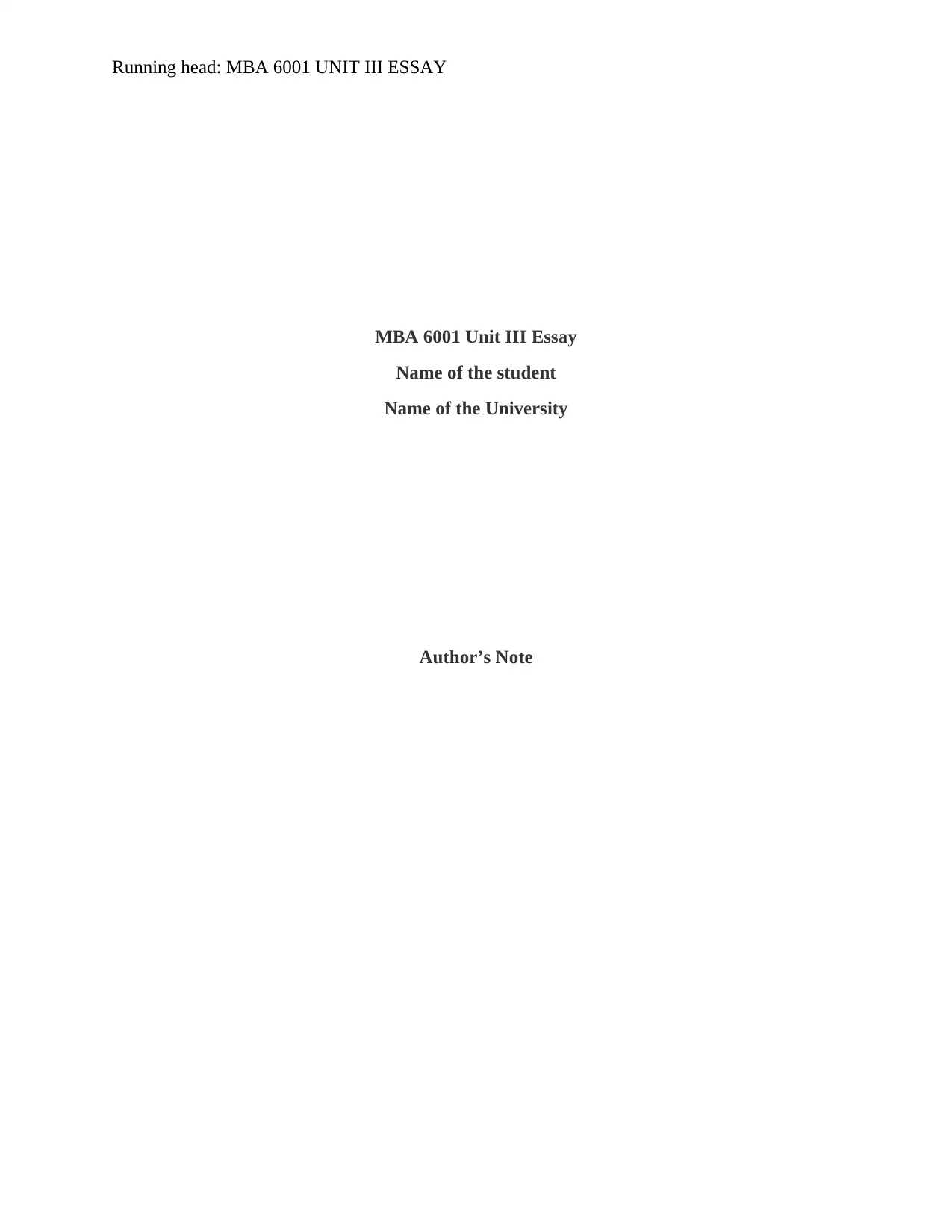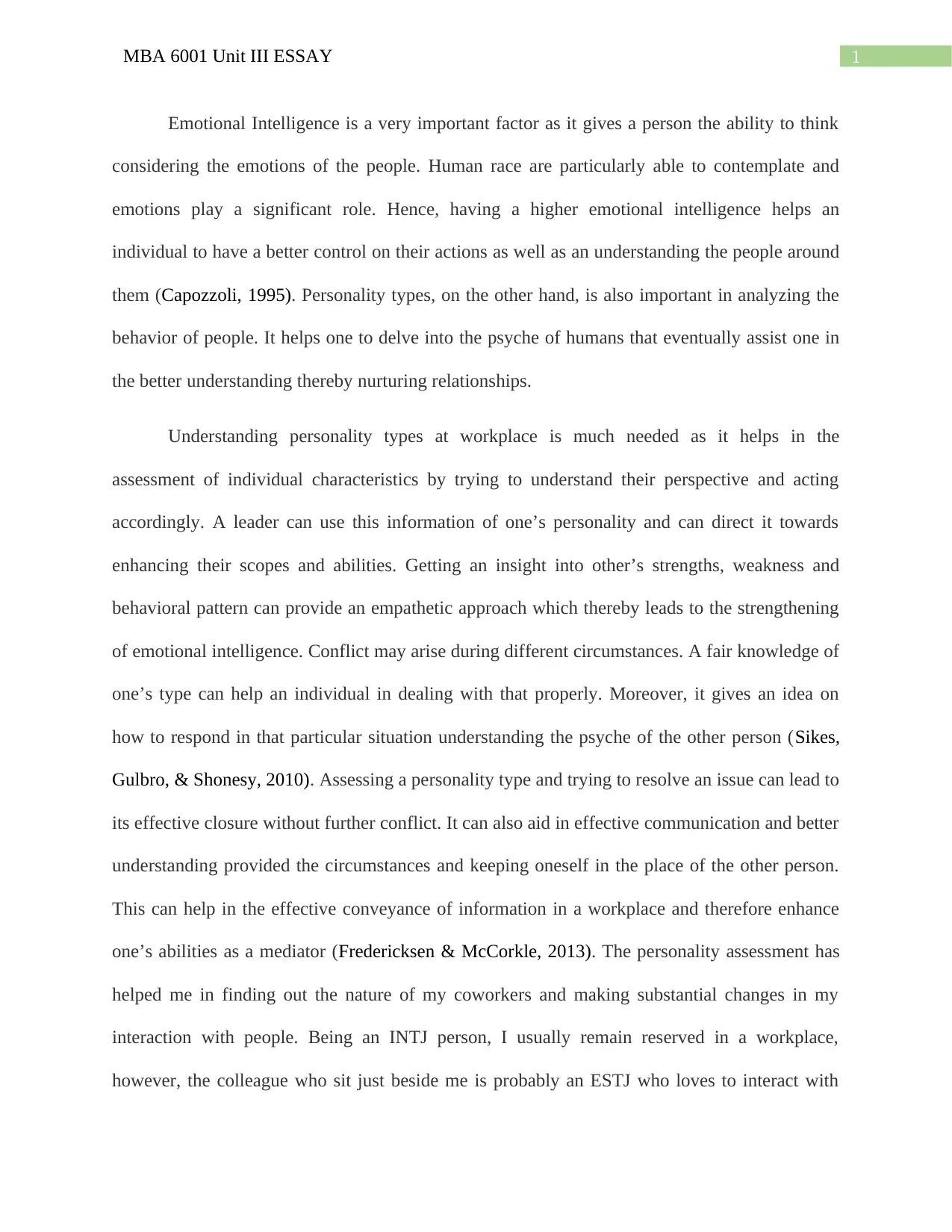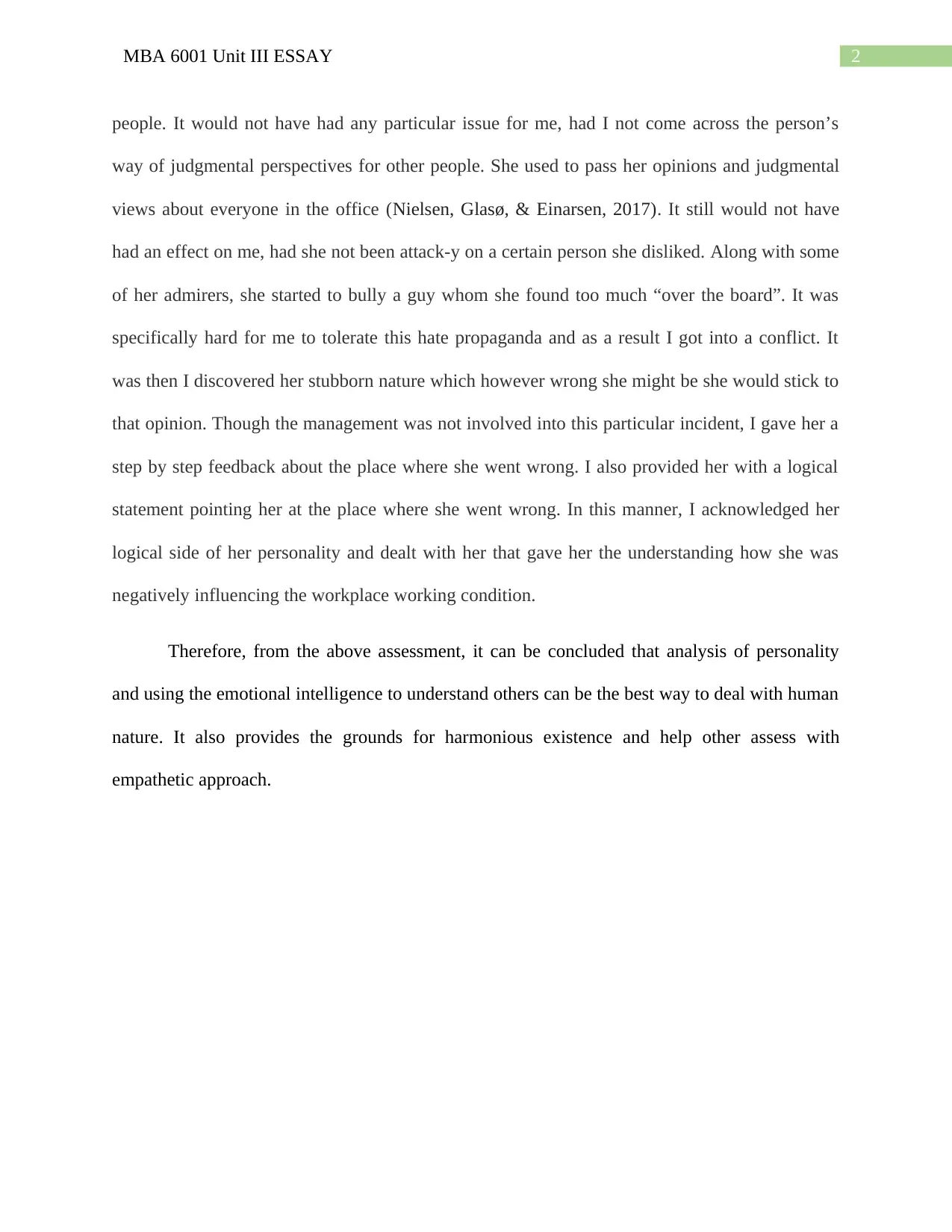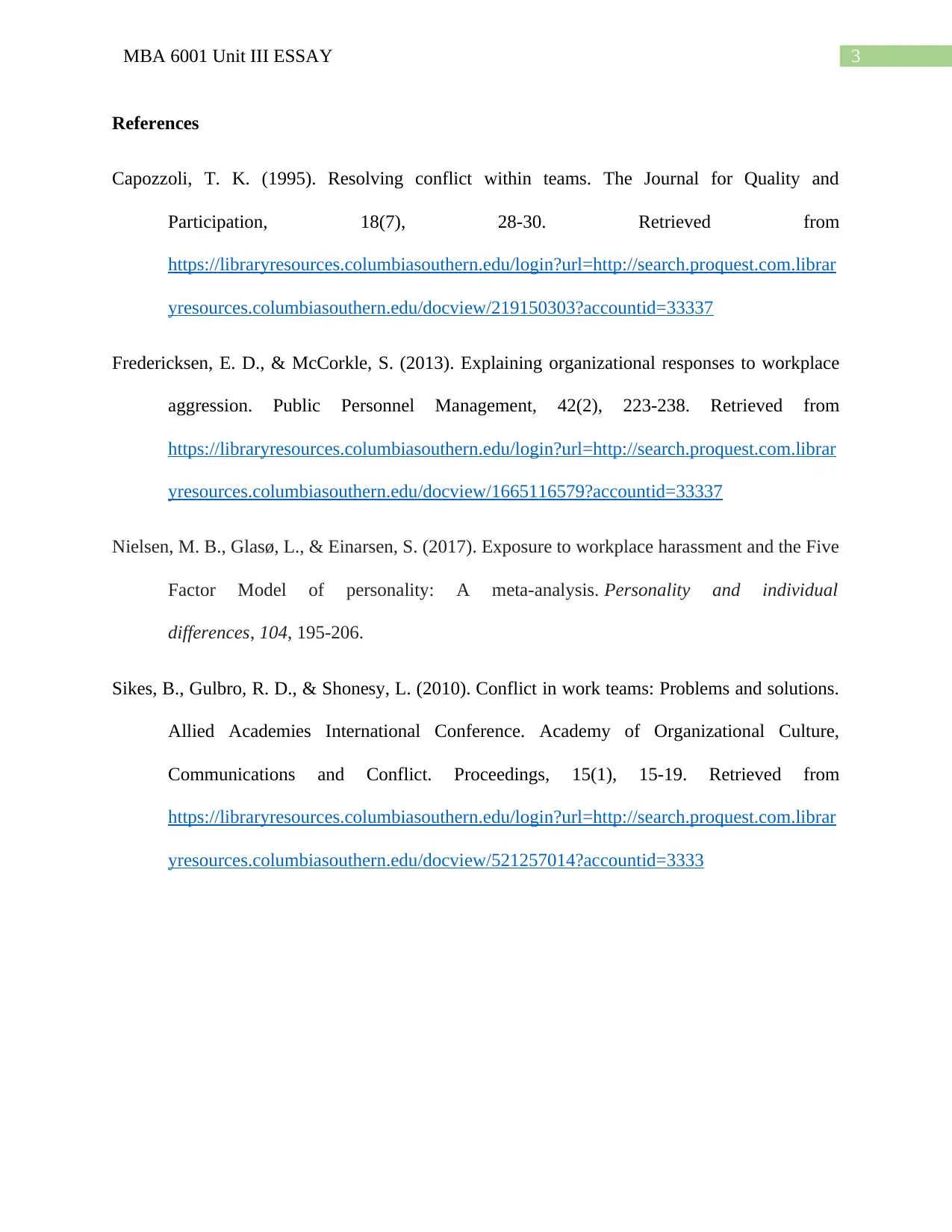MBA 6001: Unit III Essay on Emotional Intelligence and Conflict
VerifiedAdded on 2022/09/14
|4
|862
|18
Essay
AI Summary
This essay, written for MBA 6001, Unit III, delves into the significance of emotional intelligence and personality types in managing workplace conflicts. It emphasizes how emotional intelligence enables individuals to understand and control their emotions, fostering better relationships. The essay highlights the importance of understanding personality types to assess individual characteristics and adapt interactions accordingly. The author, an INTJ personality type, provides a personal account of a conflict with a colleague, illustrating how personality assessments and emotional intelligence can be used to address issues and improve communication. The essay concludes that analyzing personality and utilizing emotional intelligence are crucial for harmonious existence and empathetic approaches in the workplace, offering insights into effective conflict resolution strategies. The essay uses the provided readings to support the arguments.
1 out of 4











![[object Object]](/_next/static/media/star-bottom.7253800d.svg)